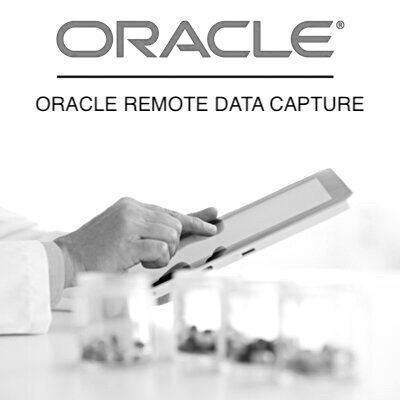Description
The Advanced Diploma in Pharmacovigilance & Regulatory Affairs (ADPV-RA) is an e-learning program designed to provide students a complete understanding of Pharmacovigilance processes, regulations and documentation as well as the pharmaceutical regulatory affairs landscape. It equips you to start a career in Drug Safety or as a Regulatory Affairs specialist. The course is aligned to the requirements of the industry and includes hands-on training modules on Oracle Argus Safety for Pharmacovigilance.
Looking for a course that includes 24×7 access to Oracle Argus Safety software? Check out this course
Curriculum
Course Stats – 26 Modules, 116 Chapters, 113 Quizzes
Module 1 – General Introduction
- Pharmaceutical & CR – Industry Overview
- Introduction to Clinical Research
- Stakeholders and Roles in Clinical Research
- History and Milestones in Clinical Research
- Principles of Good Clinical Practice
- Technologies in Clinical Trial Management
- Overview of Clinical Research Regulatory Bodies
Module 2 – Epedemiology and Evidence Based Medicine (EBM)
- Epidemiology 1 – Introduction
- Epidemiology 2 – Concept of Causation
- Epidemiology 3 – Epedemiological Study Designs
- Epidemiology 4 – Statistics
- Evidence Based Medicine
Module 3 – Principles of Pharmacovigilance
- General Overview of Pharmacovigilance
- History and aim of Pharmacovigilance
- Drug dependence
- Vaccine Vigilance
- Principles of Signal Detection in Pharmacovigilance
- Communication in Pharmacovigilance
- Post-Marketing Surveillance
Module 4 – Pharmacovigilance and Selected System Organ Classes
- Dermatological ADRs
- Gastrointestinal ADRs
- Haematological ADRs
- Renal ADRs
- Ocular Side Effects of Prescription Medications
- Drug Safety in Pregnancy
- Hepatic Drug Reactions
- Anaesthetic Adverse Drug Reactions
- Pharmacovigilance in Pediatrics
- The Cardiovascular Spectrum of Adverse Drug Reactions
- Drugs and the Elderly
Module 5 – Pharmacovigilance Systems
- Audits and Inspections in Pharmacovigilance
- Pharmacovigilance Department
- Qualified Person for Pharmacovigilance
- Standard Operating Procedures in Pharmacovigilance
- Literature Review
- MedDRA
- Eudravigilance
- Assessment of Compliance
- Mergers and Acquisitions
- Softwares used in Pharmacovigilance
Module 6 – Global Pharmacovigilance and Safety Standards
- WHO & Safety Reporting
- CIOMS Groups & Functions
- Good Pharmacovigilance Practice
Module 7 – Pharmacovigilance Regulations and Guidelines
- Safety Reporting
- Individual case safety reports
- Periodic safety update reports
- Indian Regulations with specific reference to Schedule Y
- Regulatory Pharmacovigilance in EU
Module 8 – Pharmacoepedemiology
- Introduction to Pharmacoepidemiology
- Molecular Genetic Pharmacoepidemiology
- Analysis of Pharmacoepidemiological Data
- Studies of Drug Use
- Case Control Studies
- Cohort Studies
- Data Sources
- Measures of Frequency & Risk
- Advanced Issues in Pharmacoepidemiology
- Errors in Pharmacoepidemiology
Module 9 – Oracle Argus Safety Essentials
- Overview and Navigation
- Overview of Argus Menus
- Case Form Features
- Drug and Event Coding
- Case Entry and Processing
- Advanced Conditions
- Reporting and Submissions
Module 10 – Introduction to the Judicial System in India
- Introduction to Medical Ethics, Medical Malpractice
- Overview of Judicial System in India
- Legitimacy and Paternity
- Privileged Communication and Professional Secrets
Module 11 – Drugs and Cosmetic Act and Rules
- Introduction, Aims and Objectives, Definitions
- Schedules to Drug Rules
- Import, Manufacture and Sale of Drugs
- Labeling and Packaging of Drugs
Module 12 – Schedule Y
- Introduction, Amendments to Schedule Y
- Clinical Trials
- Studies in Special Population, Post Marketing Surveillance and Special Studies
- Appendices
Module 13 – Indian Regulations Governing Clinical Trials
- Regulatory Authorities in India
- Guidelines and important provisions
- Indian Regulatory Approval Process and approval timelines
Module 14 – Regulatory Regime in US
- Responsibilities of US FDA
- FDA Centers
- Code of Federal Regulations
- FDA guidelines for industry
Module 15 – European Medicines Agency (EMEA)
- Introduction, Roles and Responsibilities of EMEA
- Committees of EMEA
- EU Clinical Directives
- EUDRA CT
Module 16 – Regulations in Japan
- Organization and Function of MHLW (JAPAN)
- Pharmaceutical Laws and Regulations in Japan
- Drug Development in Japan
Module 17 – In-Vitro and In-Vivo Pre-clinical studies
- ICH Safety Guidelines related to Carcinogenicity, Genotoxicity, Reprotoxicity
- ICH safety guidelines related to pharmacology and immunotoxicology studies
Module 18 – Efficacy Topics related to Clinical Studies
- Clinical Safety
- Dose Response Studies
- Clinical Evaluation
Module 19 – Common Technical Document (CTD)
- General principles of CTD
- Modules with Diagrammatic representation
- eCTD
Module 20 – IND and NDA Requirements
- IND and NDA applications in U.S
- IND and NDA Applications in India
Module 21 – CMC Information
- CMC for Phase I
- CMC for Phase II and III
Module 22 – Overview of GHTF
- Organization
- Study Groups and Documents
Module 23 – Regulatory Processes for Medical Devices and Veterinary Products
- U.S Scenario
- Indian Scenario
Module 24 – Biosimilars EMEA Guidance and Regulations
- Guidelines and Applications of Biosimilars
- Specific Guidelines
Module 25 – Biopharmaceutical Indian Regulations and Guidelines
- Regulatory Bodies
- Guidelines for Pre-Clinical and Clinical studies
Module 26 – Regulatory Strategic Planning, Interfacing and Corporate Communications
- Regulatory Strategic Planning
- Corporate Communications
Course Completion
- Final Assessment
- Course Certification
Certification
At the end of the course, students will be awarded a certificate of completion.
Duration
The duration of this program is 6 months.
You will have access to the course for the duration of the program.






Reviews
There are no reviews yet.